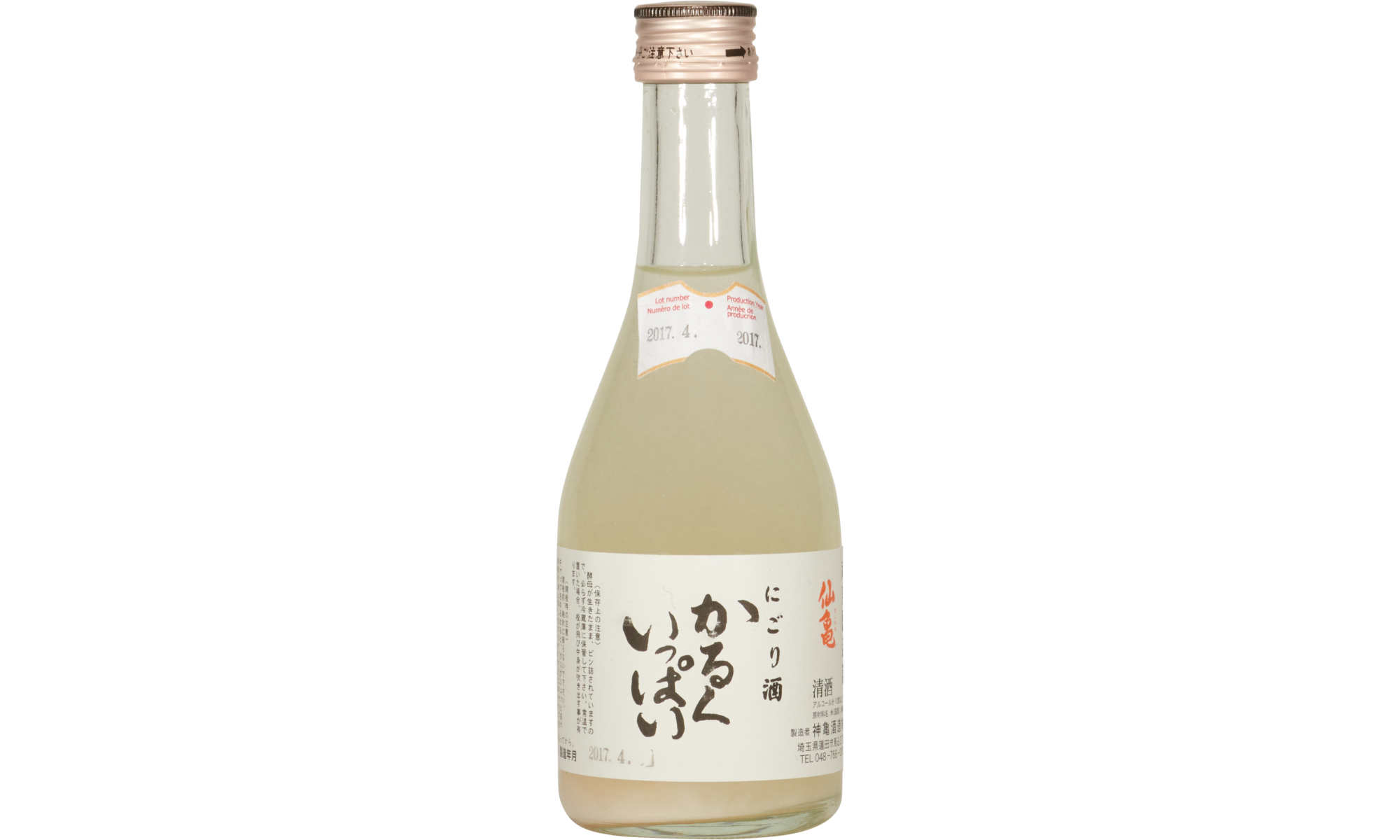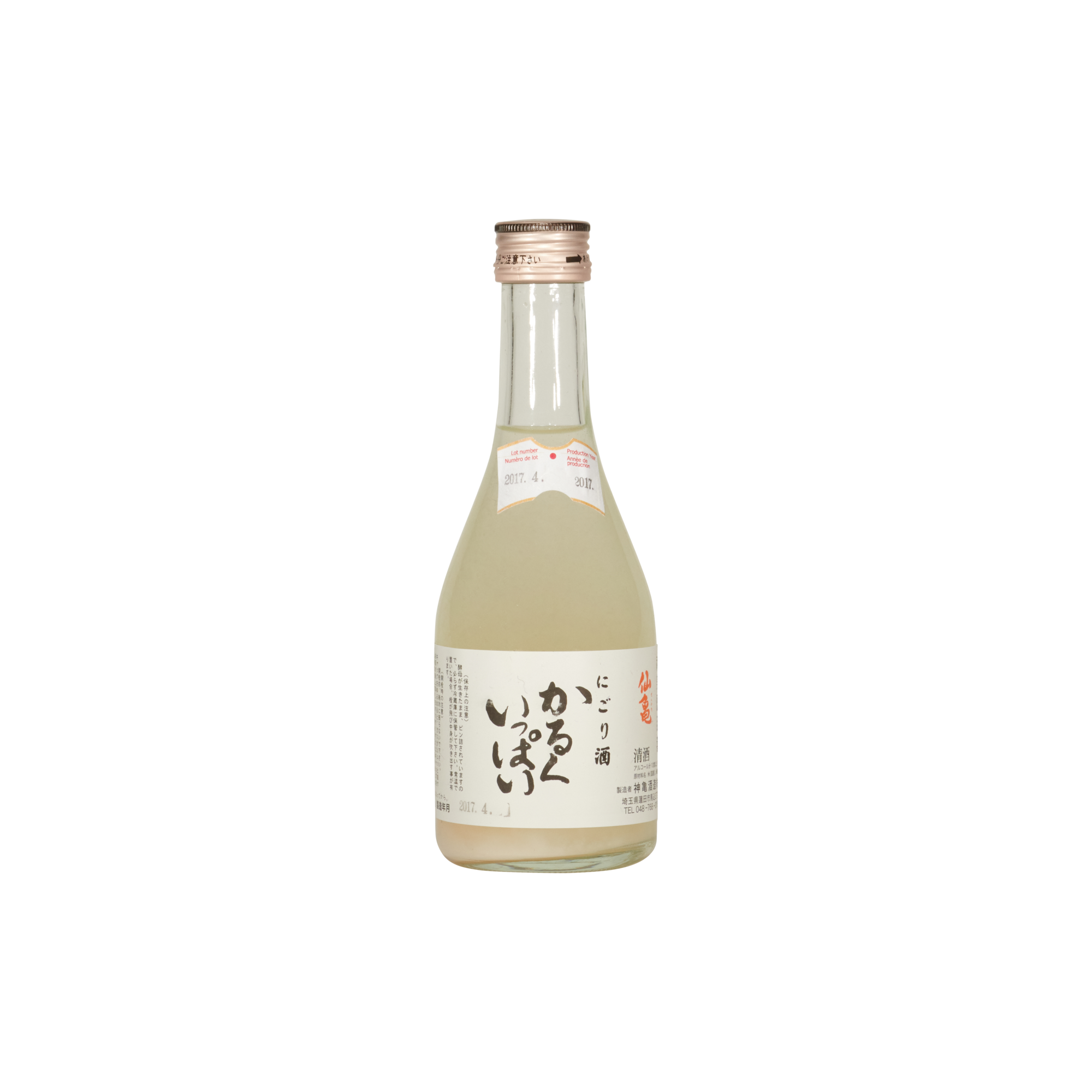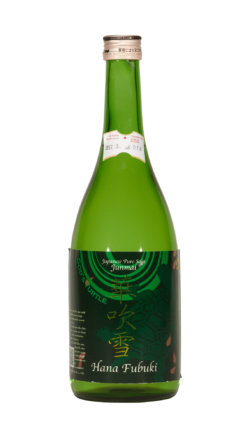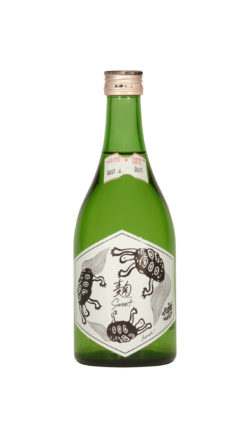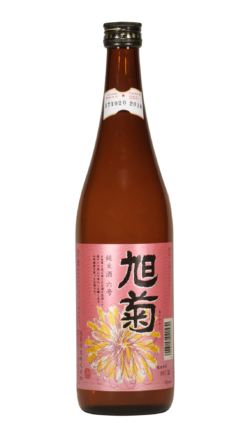| Weight | N/A |
|---|---|
| Sizes | N/A |
| Type of sake | |
| Brewery | Shinkame |
| Prefecture | Saitama |
| Vintage | 2022 |
| Volume | 30cl |
| Alcohol | 10% |
| Temperature | 7-20°C |
| Method | Sokujo moto |
| Junmai | Yes |
| Ingredients | Eau, Kome- Koji, Levures, Riz |
| Type of rice | Shuzo-kotekimai |
| Origin of rice | Not communicated by the brewer |
| Yeast | Kyugo n°9 |
| Komekoji | 21 % |
| Cuisson | |
| Namazake | Yes |
| Polishing | 60% |
| Reduction | Yes, quantity not communicated by the brewer |
| Nigorizake | Yes |
| Sparkling | Yes |
| Maturation | 6 months minimum |
| Press |
Senkame Junmai Nama Nigori Sparkling
14,00 €
Be careful at the opening, it will backfire. No tradition in it, the idea is the same as everywhere, the bubbles !!! This type of sake was invented by Yoshimasa Ogawahara in 1969. Contrary to its big brother shinkame junmai sparkling, it is a very easy sake with a nice lactic acidity. It is drunk without thinking, 10° of alcohol, light and fresh.
Senkame Junmai Nama Nigori Sparkling
14,00 €Senkame Junmai Nama Nigori Sparkling
Be careful at the opening, it will backfire. No tradition in it, the idea is the same as everywhere, the bubbles !!!This type of sake was invented by Yoshimasa Ogawahara in 1969. Contrary to its big brother shinkame junmai sparkling, it is a very easy sake with a nice lactic acidity. it is drunk without thinking 10° of alcohol, light and fresh.
Informations sur la brasserie Shinkame
Established in 1848 in Saitama, the literal translation of the brewery's name is "holy turtle". Legend has it that many generations ago there was a shrine behind the brewery that celebrated the god of wisdom. A turtle lived there and was considered to be the messenger of this god.... more prosaically the turtle is an animal that lives very long, sometimes beyond the life of humans. It is a symbol of longevity.
After fighting for the revival of traditional sake since 1966, in 1987 Shinkame Brewery became the first brewery to produce only Junmai sake (pure rice sake)
It makes Kome-koji using the koji-buta method for all of its sake, which is the most labour-intensive and artisanal method of production. Some breweries use the kojibuta method only for their highest quality sake.
The brewery ages its sake for a minimum period of 2 to 3 years, even for its standard products. This ageing makes the sake smooth, complex and melts on the palate.

